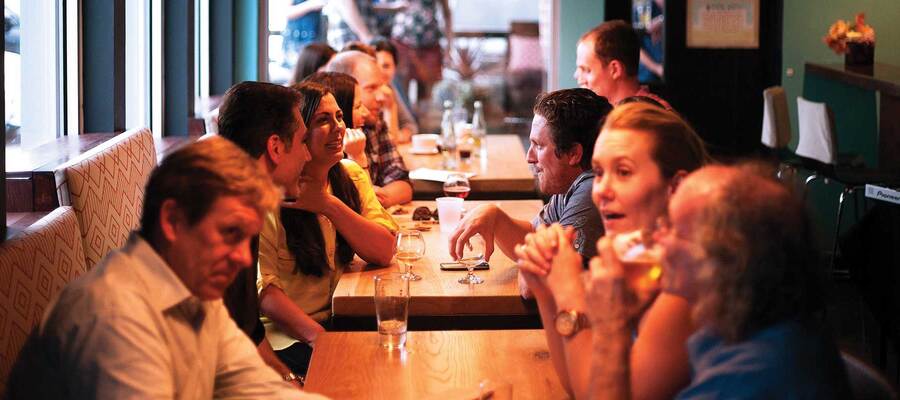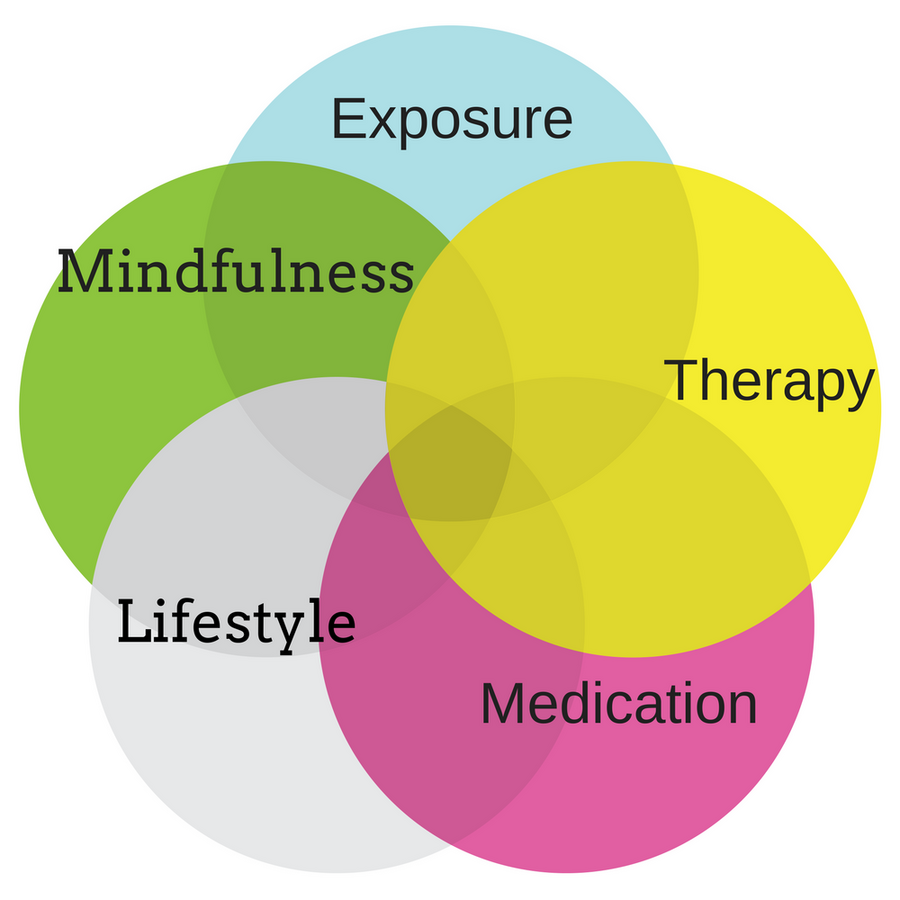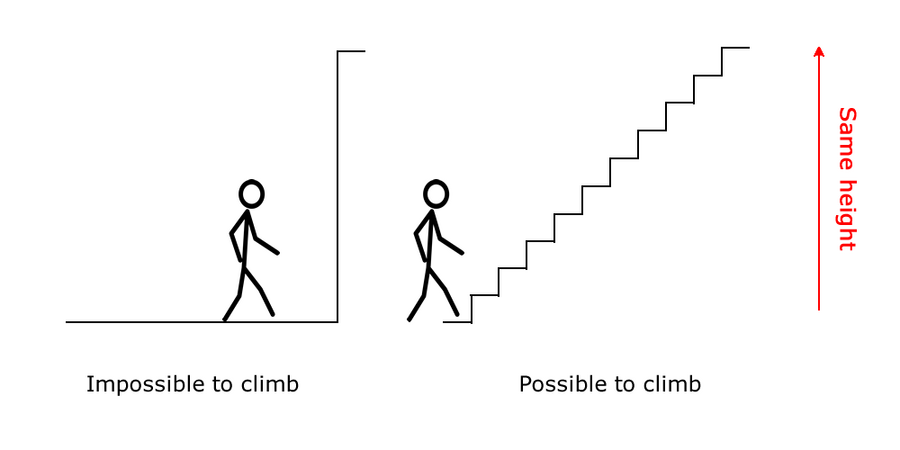
The complete guide to social anxiety
If you struggle in social situations, you are not alone. Social anxiety, also known as social phobia, is the most common form of anxiety.
What is social anxiety?
Social anxiety is a form of anxiety centred around social situations such as talking to people, public places and being in groups. These feelings are persistent and prolonged1.
Typically, it is driven by a fear of embarrassment. People feel that other people are judging them and that they will be humiliated in some way that will make their lives very unpleasant.
It is not just shyness. Some people experience social anxiety even though they consider themselves outgoing2.
How does it impact your life?
In affects different people in different ways. It may make it more difficult to:
- Meeting new people and starting conversations
- Talking in groups
- Speaking on the phone
- Eating in public
- Attending group social situations such as parties, pubs, restaurants
It may also have noticeable consequences, including:
- Being difficult to concentrate on what people are saying
- Difficulty remembering what people have said
- Mumbling or mixing up your words
What effects does it cause?
It can make you feel very uncomfortable. For some people, it may lead to full blown panic attacks. For others, it may cause a sudden need to escape from a particular situation.
Often, you will find yourself avoiding social situations. This may take the form of:
- Avoiding speaking to people
- Declining invites to social events
- Accepting invites and then cancelling
- Hiding under the bed covers and not turning up
Why is social anxiety bad?
Apart from the obvious problem of it causing you to avoid doing things you would otherwise enjoy, and feel uncomfortable in many situations, it can also have a corrosive effect on your relationships.
An essential part of building strong relationships is shared experiences. Therefore, when you are unable to share these experiences with your friends, you miss out. This is a problem because relationships have a significant impact on your mental health3.
Why do we feel social anxiety?
While everyone is different, there are typically two root causes.
The first is fear of embarrassment. This is the one that people usually have in their conscious. They are worried something humiliating will happen or that people will make fun of them. They overestimate the chances of this happening, and the consequences of it if it does happen.
The second, typically found on a more subconscious level, is fear of exclusion. We are all terrified of being excluded. Why? Because for our cave-man ancestors, when the human brain evolved, being excluded from the group meant death. Society may have changed from that time, but our brains have not.
Therefore, we worried about being accepted. We worry about our social fitness if you will: our ability to play a part in society because our monkey-brains think we depend on it for survival.
Stages of social anxiety
You may be affected before, during or after an engagement.
Before the event, you may worry that you are going to find the experience unpleasant, and think about all the things that could be wrong. You may tell yourself there is no point going because you will not enjoy yourself.
During the event, you may find your mind constantly preoccupied with worry and therefore be unable to concentrate on the present moment.
After the event, you may find yourself over analysing what happened. You may worry that someone misinterpreted something you said or took it the wrong way.
How do I fix it?
There are lots of options for reducing the amount of social anxiety you experience. Many of these complement each other so that you can use several different treatments together. Below, I have outlined five of the most useful.

Therapy
Cognitive Behavioural Therapy: The most effective treatment we currently have is cognitive behavioural therapy (CBT). This therapy looks at the thought patterns you run into and how to challenge them. You then practice behaviours that make these thoughts go away.
For example, you might fear attending parties because you think you will be embarrassed. The chances are that you are overestimating this probability. Therefore you would go to a party and test it out. You would then see you do not get embarrassed and teach your brain that it is okay.
Sounds scary, right? Don't worry. This is all done in stages. You start off with something really easy and repeat it until your anxiety level drops back towards a normal level. You then gradually build up to harder challenges, but only when you feel ready. I'll discuss using exposure in more detail below.
Acceptance & Commitment Therapy: ACT is predicated on the idea that we are always going to be anxious but that it does not mean that it needs to control our lives. The idea is that we would accept the feelings and develop improved coping skills for them.
Metacognitive Therapy: A relatively new therapy that looks at beliefs about beliefs. For example, we may struggle to challenge our anxious thoughts because we believe these thoughts keep us safe or that we cannot change. MCT challenges these "metacognitions" so that we then have better results challenging the anxious thoughts themselves.
Exposure
The best way to tackle social anxiety is to put yourself in social situations and see that the things you are afraid of do not happen. With social anxiety, there are typically two faulty beliefs that maintain our anxiety:
- We will humiliate ourselves
- The social consequences of this will be dire
Belief one is incorrect. There is always the chance that we will do something very embarrassing. However, most of the time, this does not happen. We worry because we are greatly over-estimating the probability of this happening.
Belief two is also incorrect. Even though we may occasionally do something very embarrassing, it is rarely as bad as we think it will be. We worry that we will be humiliated, lose all of our friends and die alone as a crazy cat lady. In reality, everyone else forgets about it quickly.
However, telling ourselves that these beliefs are nonsense is not enough. We need to show ourselves that social situations are safe.
How do we do that when we are too afraid to put ourselves in those situations?
We use graded exposure. This means breaking the process down into manageable steps. By creating a fear hierarchy, we can start with easy steps, such as meeting a friend and build up to scarier situations, such as attending large parties.

See our article on exposure therapy to learn how to do this.
Mindfulness
Mindfulness is about living in the moment. We often spend so much time in our own head that we forget to experience the world around us. This makes life feel unpleasant. Practising mindfulness can help us enjoy life once again.
Developing a mindfulness routine will help reduce your background level of anxiety. This means that although you are still likely to find social situations challenging, they will not feel quite as bad and you will have more energy to face them.
Mindfulness is also an important component of exposure: when we put ourselves in uncomfortable situations, we need to be present to ensure that we learn the situation is not dangerous. Distracting ourselves just ignores the problem: we want to focus in on the moment to teach ourselves that the situation is safe.
Click here to access our free mindfulness meditations or learn more about our Mindfulness for Social Anxiety course.
Lifestyle
How we live our lives has a significant effect on how we feel. How much exercise we do, how healthy our diet is, what our sleep pattern is like, how much time we spend relaxing and the relationships we maintain all play a part in our mental health. By making positive changes in our lives, we can improve our mood and feel less anxious.
For a detailed breakdown of what the evidence is for lifestyle change and what you should do about it, see my book, Do More, Worry Less. Or try our free 30-Day Challenge.
Medication
Medication can be a powerful tool for reducing your anxiety. There are drawbacks: it comes with some unpleasant side effects and can take a few months to be effective. However, it is quicker than other forms of treatment and there is lots of evidence to show it works. If you want to try medication, you need to discuss your options with your doctor.
Conclusion
Social anxiety is the most common form of anxiety. It leads to us avoiding situations and reducing our relationships. Luckily, social phobia is treatable: as long as you are willing to put the work in.
Metadata
Published 17 April 2017. Written by Chris Worfolk.
References
-
American Psychiatric Association. Diagnostic and Statistical Manual of Mental Disorders, Fifth Edition (DSM-5). 31 May 2015. ISBN: 0890425558 ↩︎
-
Heiser NA, Turner SM, Beidel DC. Shyness: relationship to social phobia and other psychiatric disorders. Behav Res Ther. 2003 Feb;41(2):209-21. ↩︎
-
Mentalhealthandsocialrelationships.Economic&SocialResearchCouncil. May 2013. http://www.esrc.ac.uk/files/news-events-and-publications/evidence-briefings/mental-health-and-social-relationships/ ↩︎